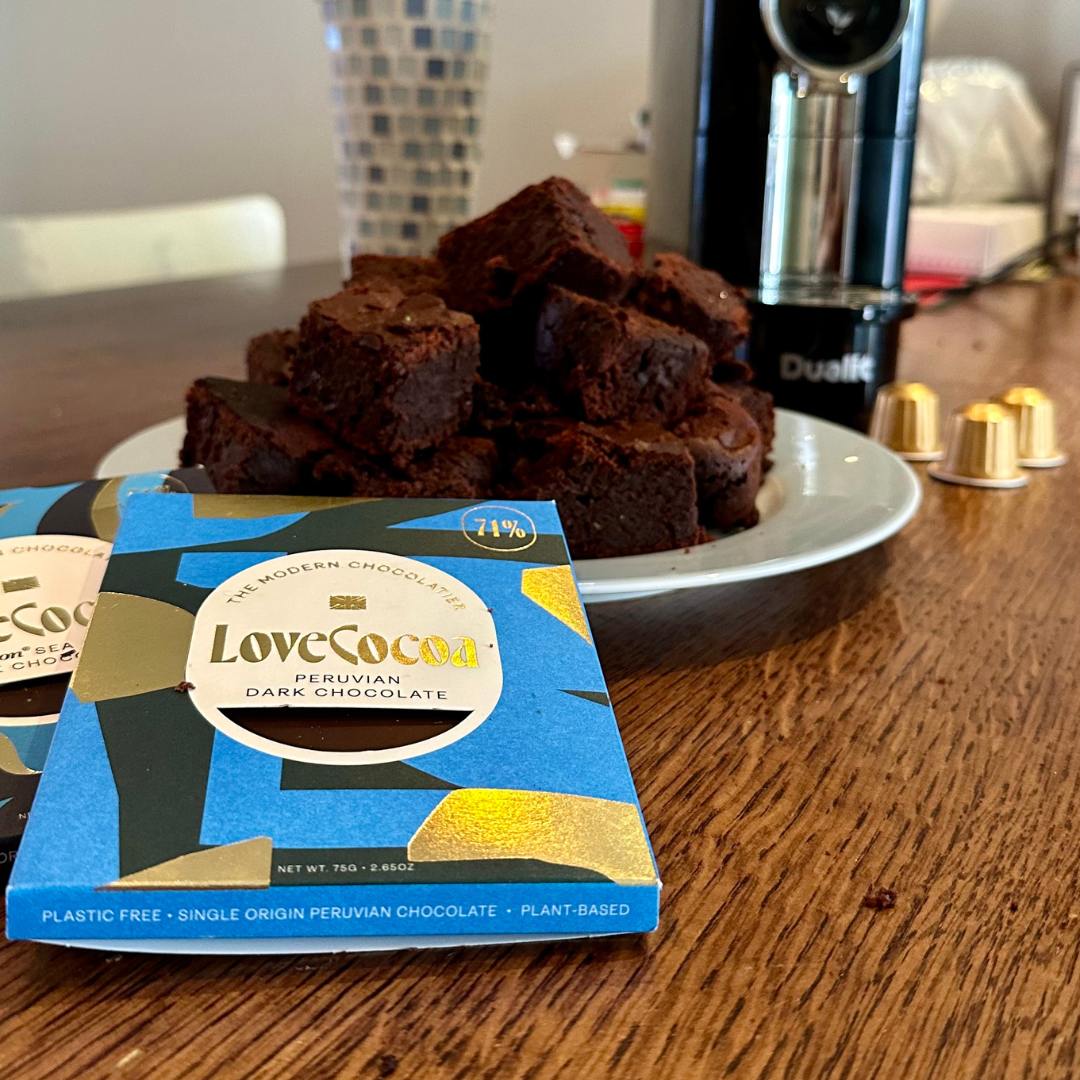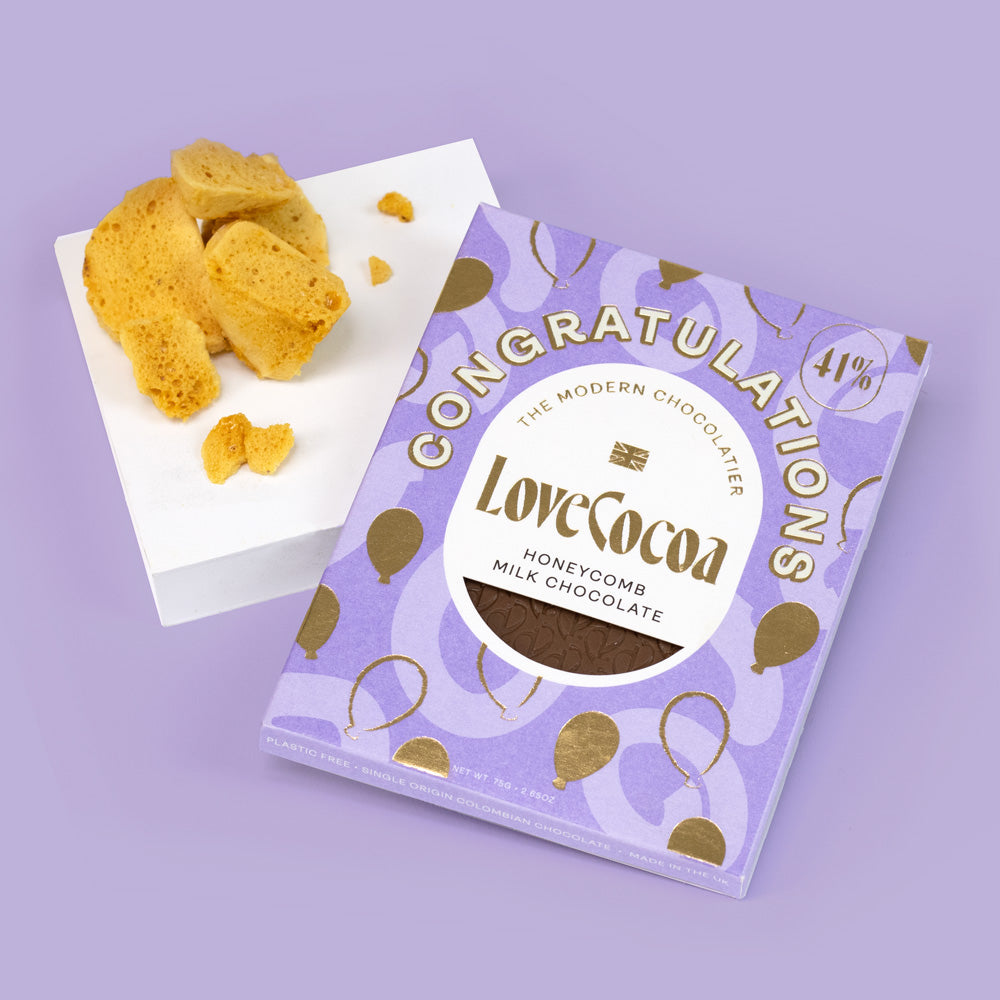Although our link to Cadbury doesn't reflect our high-quality, luxury chocolates, alongside many Britons, we're nostalgic about a company that was once a paragon of an honest British business that cared as much about its workers as its profit, and we’re committed to continuing the Cadbury legacy. Today, James Cadbury is the only member of the family still connected to the chocolate industry.
Who is James Cadbury?
James grew up in Birmingham, just five miles away from the Bournville Cadbury factory, where he’d go on school trips and birthday parties, earning the nickname Curly Wurly from his classmates. He went on to do Marketing at Liverpool University, followed by a Masters in Real Estate, after which he remained in Birmingham and began working in finance. It wasn’t long until he became disillusioned by the finance world, and he knew it wasn’t a career he wanted to pursue or felt any real passion for.
Why did James create Love Cocoa?
People, including James himself, often feel a little sentimental about the Cadbury company, which had earned its place as a strong British business that created a world-leading product. James found himself fascinated by the history of his family, of the wider chocolate industry and the fierce competition that existed between leading brands. It’s then no surprise that he took the step towards creating his own chocolate company.
How did the Cadbury company start?
In the 19th century, the Cadbury family were Quakers, meaning they were outcast by society and so unable to obtain the same jobs as other citizens. Quakers were not allowed to be doctors or lawyers, and they were banned from military service. So, John Cadbury chose to set up his own business. He wasn’t the only Quaker of his time to do so: Barclays Bank, Lloyds Bank, Clarks and Carr’s are all examples of businesses founded by Quakers.
The first chocolate sold at the Cadbury’s grocery store was hot chocolate. In a period of social unrest in Birmingham, a city rife with people making their own gin and consuming it themselves, the cocoa drink sold by Cadbury was an alternative to alcohol. It was a very different drink from the hot chocolate we know and love today, made by crushing the cocoa beans and adding spices. It was both the cocoa aroma and the use of spices, which were not ubiquitously available in the way that they are now, that drew people in.
The Cadbury Story
John passed the business down to his sons - George (James’ great-great grandfather) and Richard - who brought in a machine from Holland which helped them add milk into their chocolate, creating the UK’s first milk chocolate and revolutionising confectionery forever.
In the midst of their success, ethics always remained at the forefront of the Cadbury company. Initially, the Cadbury’s sourced their cocoa from São Tomé, but upon investigating issues surrounding slavery and terrible working conditions, in 1909 William Cadbury announced a boycott of slave-grown cocoa and convinced other British and American chocolate companies to join him. Fair labour conditions were crucial: the foundation of the Bournville Village Trust was a result of the family’s desire to provide good homes in a safe, spacious environment for Cadbury’s workers, and the decision to move their factory from the city centre to Bournville meant moving employees out of the city smog. The Cadbury company was also the first to spread bank holidays to all their workers.
The time and work put into Love Cocoa’s packaging designs is also inspired by our Cadbury heritage. George Cadbury himself was an artist who made paintings to put on their chocolate bars, a decision that had little precedent. In its early years, Cadbury was a brand committed to innovation and quality, and this is a commitment that remains at Love Cocoa’s core.
A family of philanthropists, the Cadburys gave a lot of their money away and made no effort to ensure that it was always kept within the family. Unlike similar family-owned companies, it was not a requirement that a family member was on the board. As a result, the Cadbury family had no say nor control when the company was bought by Kraft (now Mondelez) in 2010.
The hostile takeover is remembered well by many Britons. Within a week, Kraft shut down the Bristol Cadbury factory, leaving hundreds without jobs, and Cadbury quickly moved from being Britain’s most-loved brand to one shrouded in negativity.
What does our heritage mean for us today?
Although the classic dairy milk bar is undeniably still a universally well-loved treat, the ethos upon which the Cadbury company was first founded has been lost in the modern brand. So, James created Love Cocoa to preserve the Cadbury legacy, keeping ethics and sustainability at the heart of everything we do whilst creating luxury products that celebrate the power of cocoa.


